
Copernical Team
SpaceX launches Turksat-5b
 SpaceX launched a communications satellite from Florida overnight Saturday for the Turkish company Turksat. Elon Musk's rocket firm launched the Turksat 5B satellite aboard a Falcon 9 rocket from Complex 40 at Cape Canaveral Space Force Station during a two-hour window that opened at 10:58 pm.
SpaceX launched a communications satellite from Florida overnight Saturday for the Turkish company Turksat. Elon Musk's rocket firm launched the Turksat 5B satellite aboard a Falcon 9 rocket from Complex 40 at Cape Canaveral Space Force Station during a two-hour window that opened at 10:58 pm. New space telescope to uncover secrets of Universe's origins
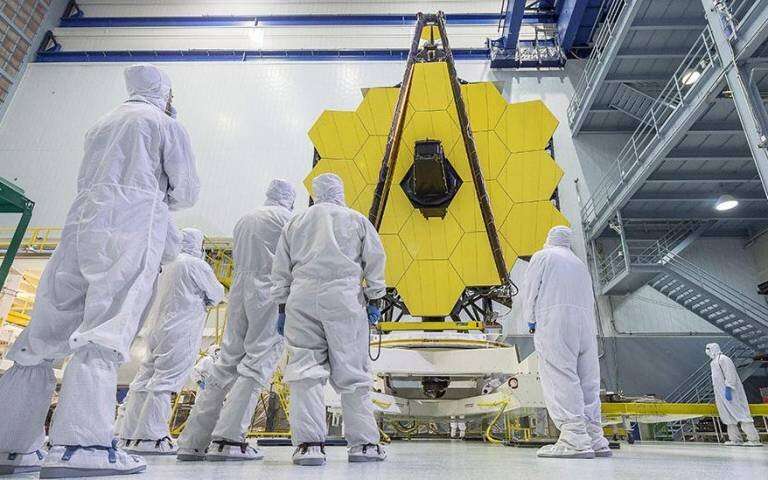
The NASA-led James Webb Space Telescope, which includes hardware designed and built at UCL and which will image the very first stars to shine in the Universe, is scheduled to be launched into space later this month.
The telescope, one of the great space observatories following Hubble, will be launched on-board the Ariane rocket from Europe's spaceport in French Guiana on or after Friday 24 December. It will take 30 days for the telescope to reach the Lagrange point 2, about a million miles from Earth, where it will begin operating. UCL astronomers will be among the first to analyse its observations of the Universe.
The mission—a partnership between NASA, the European Space Agency (ESA) and the Canadian Space Agency (CSA) – is expected to make breakthrough discoveries in all fields of astronomy by investigating the light of the Universe at (invisible) infrared wavelengths.
A team at the UCL Mullard Space Science Laboratory designed and built a key piece of hardware for one of the telescope's four instruments, a near-infrared spectrometer called the NIRSpec. About the size of a double bed, the NIRSpec measures light split into different wavelengths.
SpaceX launches 52 Starlink satellites from California base
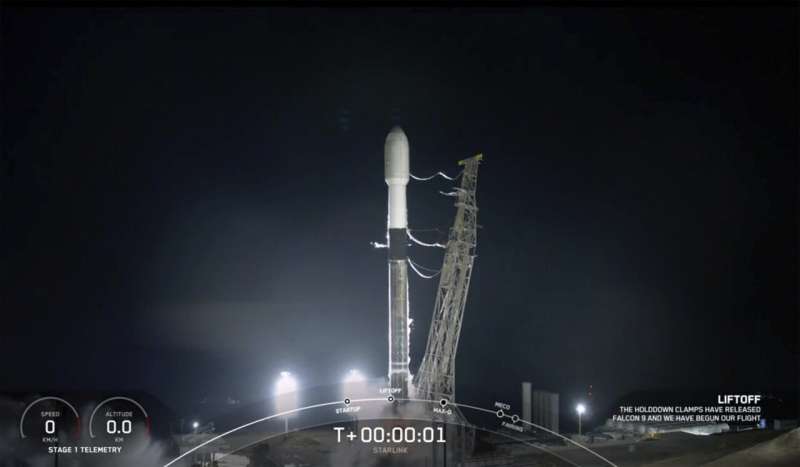
NASA Sets Coverage, Invites Public to View Webb Telescope Launch
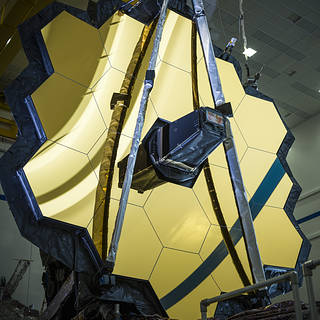 NASA will provide coverage of prelaunch, launch, and postlaunch activities for the James Webb Space Telescope, the world’s largest and most powerful space science telescope.
NASA will provide coverage of prelaunch, launch, and postlaunch activities for the James Webb Space Telescope, the world’s largest and most powerful space science telescope. Webb launch confirmed for 24 December
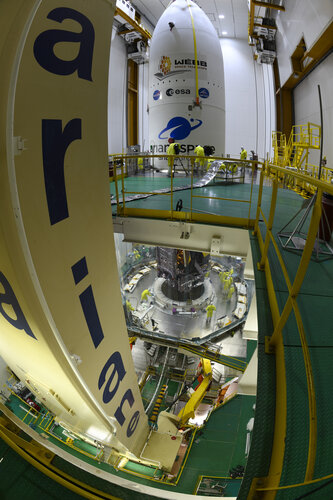
The James Webb Space Telescope is confirmed for the target launch date of 24 December, at 12:20 GMT / 13:20 CET.
FAA: Georgia spaceport decision near, but more study needed
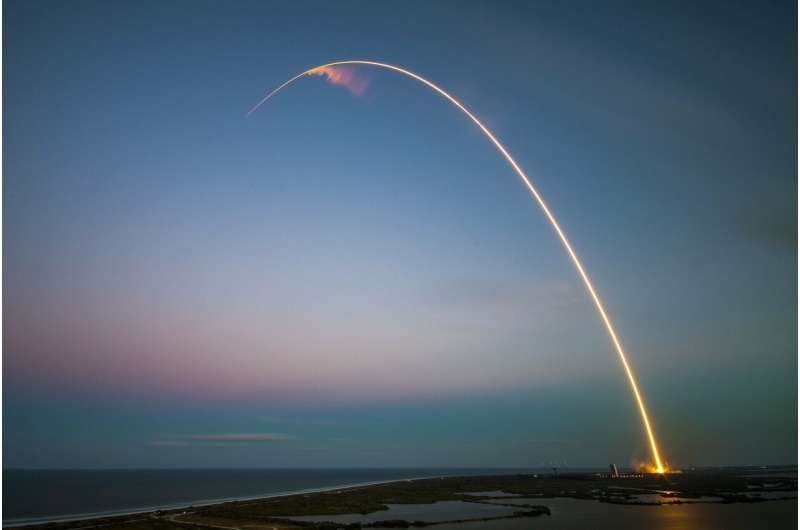
A federal agency expects to announce its decision Monday on whether to allow a launchpad that would send commercial rockets into space from coastal Georgia.
However, the Federal Aviation Administration is emphasizing that a license authorizing Camden County to operate a spaceport would not yet permit the launch of any rockets.
In a letter released Friday by the FAA, the agency said a more comprehensive review would be needed before any rockets can be launched from Georgia.
Even if the license for Spaceport Camden is approved, "it would not authorize a single launch," an FAA executive wrote to the U.S. Department of the Interior.
"Simply put: to obtain a Vehicle Operator License, many more reviews remain, and no outcome is guaranteed," the letter stated.
Any company seeking to launch from the site would need to obtain a Vehicle Operator License and undergo a separate environmental and safety evaluation, according to the FAA.
Camden County, in the southeastern corner of the state, has spent nearly 10 years and $10 million pursuing the goal of having what would be the nation's newest commercial spaceport.
NASA confirms next Friday for Webb Space Telescope launch
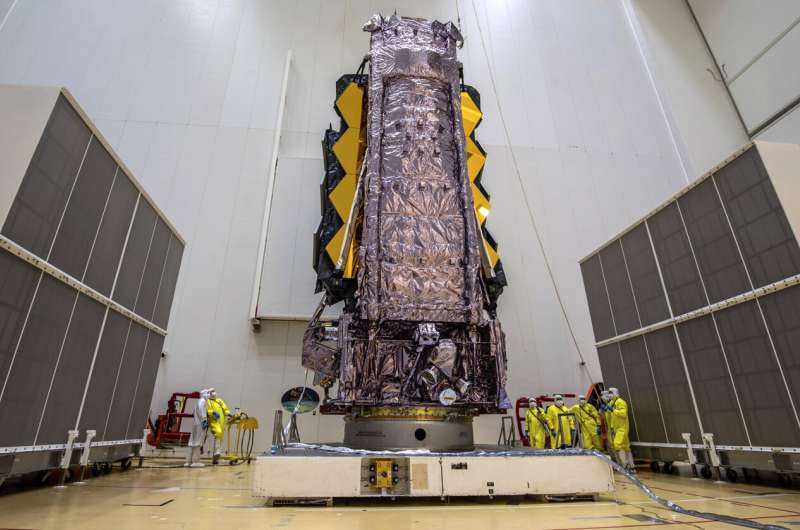
Investing recovery and resilience funds in space projects

Green and digital transition in Europe will benefit from ESA expertise that supports national plans for investing recovery and resilience funds in space projects.
At the 303rd ESA Council meeting in Paris on 15 December 2021, ESA Member States took the decision to further the role of ESA as provider of expertise in support of national space plans, in particular in order to accompany the investment of Italian recovery and resilience funds in space programmes.
Paving the way to thriving in space
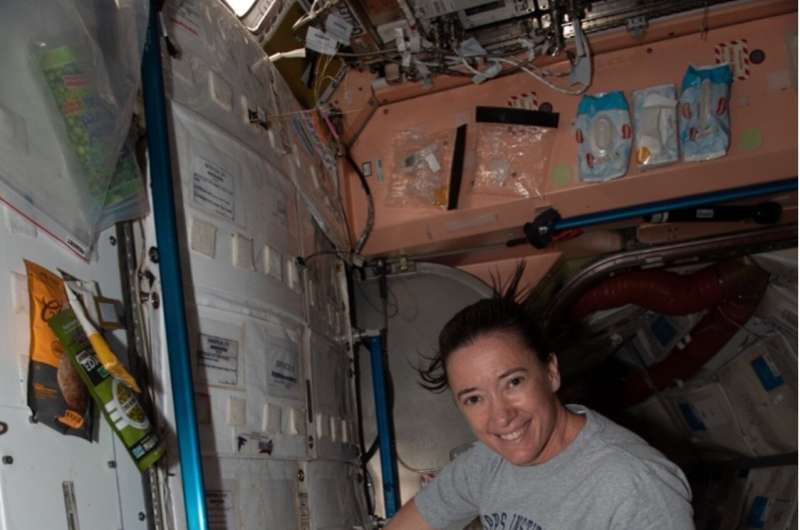
In late December, SpaceX-24 will deliver a payload to the International Space Station. Three new experiments that will help scientists better understand specific biological and physical phenomena will be on board.
"It's really exciting when we get to conduct new investigations aboard the Space Station," said Dr. Craig Kundrot, Director of NASA's Biological and Physical Sciences Division. "What these three experiments have in common is each will contribute fundamental scientific insights that will both enable our astronauts to thrive on their future long-range missions and provide tangible benefits to people on Earth."
Growing plants in harsh conditions:
The Plant RNA Regulation Redux in Multi Variable Platform (MVP-Plant-01) experiment will profile and monitor a plant's shoot and root development under microgravity conditions. The results of this experiment will help scientists better understand the molecular mechanisms and regulatory networks behind how plants sense and adapt to environmental changes. Ultimately, the findings could help scientists design plants that will be able to withstand adverse environmental conditions, both during long spaceflights and here on Earth.

































